[ad_1]
Hello everyone, this is Leonid Volkov. Despite all the ups and downs associated with “extremism” and blocking, we continue to prepare for the autumn elections to the State Duma. And preparation for the elections is impossible without sociological data, without honest and high-quality sociology, ordered and verified by us.
We do not usually publish data from these studies; as I told in a recent videoThis is because survey data by itself can often create the wrong impression. However, in a recent study, we stumbled upon a very interesting phenomenon, and decided to share it.
You have certainly noticed how chaotic the actions of the Russian authorities were related to the coronavirus pandemic. In recent months, they have been even more chaotic than before. Since the beginning of May – for three months in a row – in Russia every day, according to official data, more people die from the coronavirus than in all other European countries combined; we are talking about tens of thousands of lives. At the same time, the rates of vaccination remained very low, and then, in early June, the Russian authorities announced the inevitability of compulsory vaccination. And then … and then President Vladimir Putin devoted a significant part of his “Direct Line” on June 30 to saying that there can be no compulsory vaccination in any case. Well, only if the regions decide. That is, he tried to push the responsibility for the decision already made onto the governors.
We know very well that such things happen in Russian politics for a reason. The Kremlin is very worried about the results of the autumn elections, and, apparently, their throwing around with the vaccination policy was also somehow connected with the fact that it is important for Putin that the fight against coronavirus does not affect the rating of United Russia. The election results for Putin matter much more than the lives of Russians – the whole world has known this for many years. Two studies commissioned by us in June and July – one before and the other after Putin’s Direct Line – show that this is exactly the case. See for yourself:
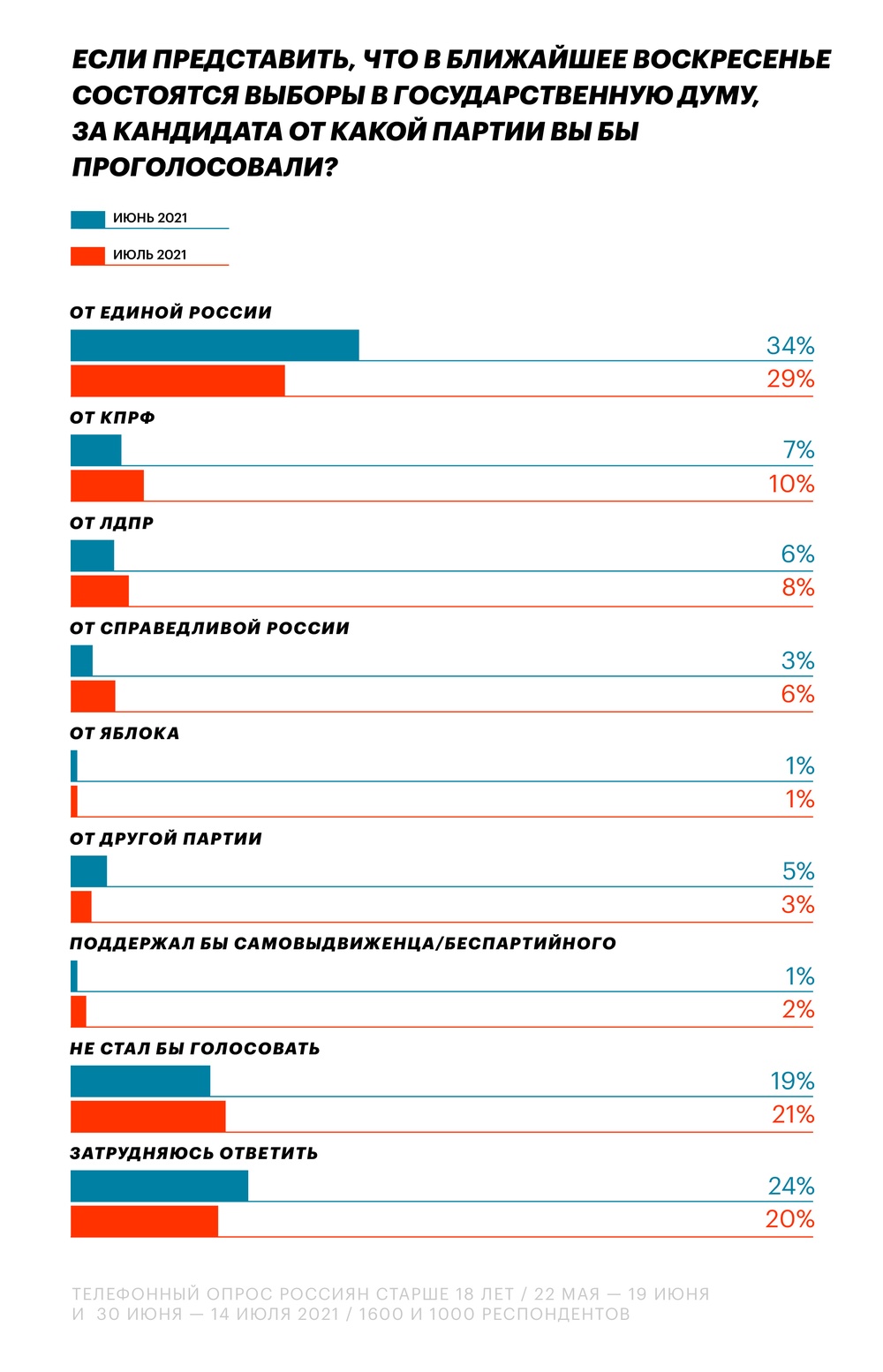
We look and immediately see: who is it here that sank in just a month? This is United Russia. (A rare case, by the way: here our results practically coincided with those of VTsIOM). It can be seen that the United Russia is rapidly losing votes in favor of other parliamentary parties, and especially in favor of the Communist Party, which is actively trying to straddle the topic of compulsory vaccination. Well, let’s also note: this one slide is the best campaign in favor of Smart Voting – United Russia has only 29 percent of the vote, and candidates from United Russia are easy to win, but only if the protest votes are not smeared, but are united.
Is there anyone who sank more than United Russia? Yes. This is President Vladimir Putin:
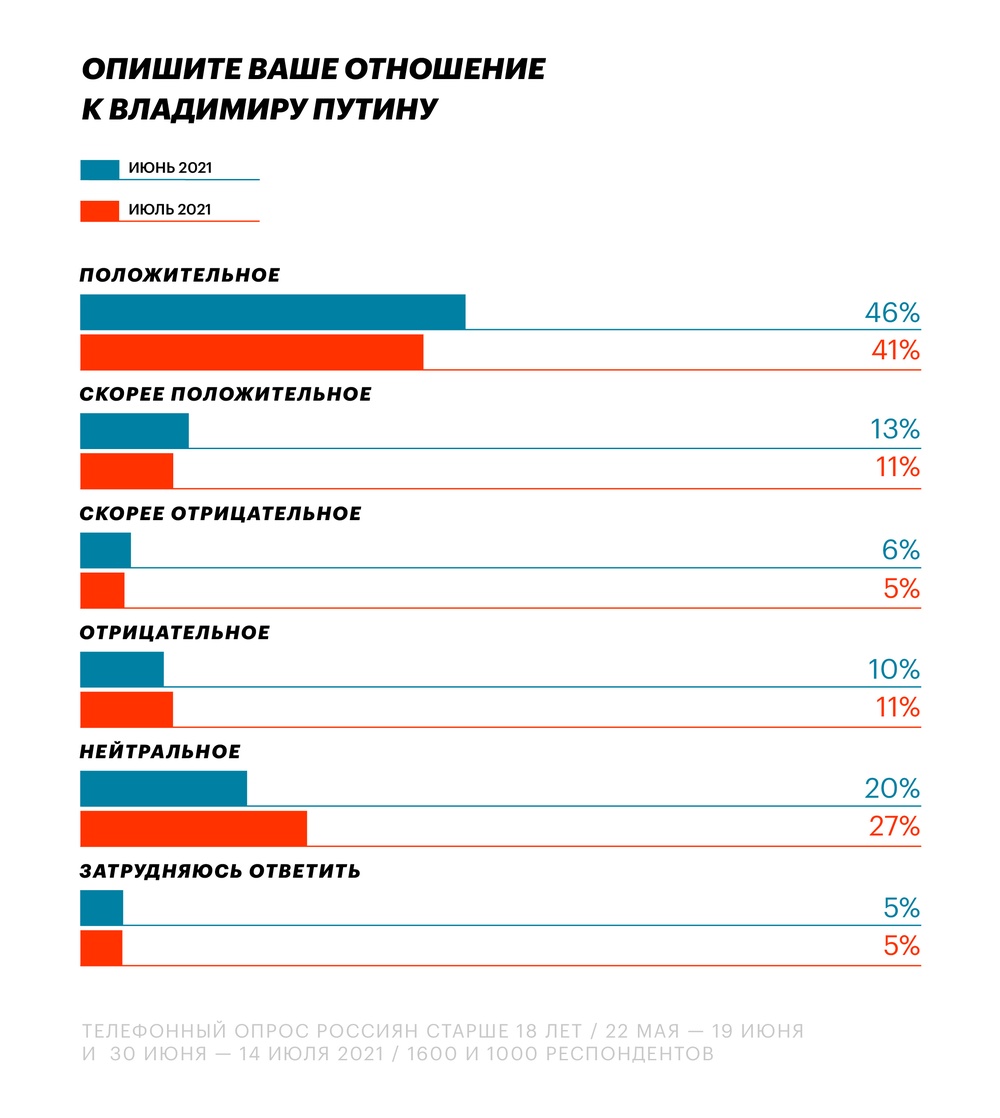
We have not seen this in many, many years of observation. Firstly, this is the historical minimum of Putin’s rating since 2013; secondly, this is the historical maximum of the fall rate for the month. There was something in the presidential administration to get alarmed and run in! Well, why did the ratings of Putin and United Russia sag so much? The answer is simple:
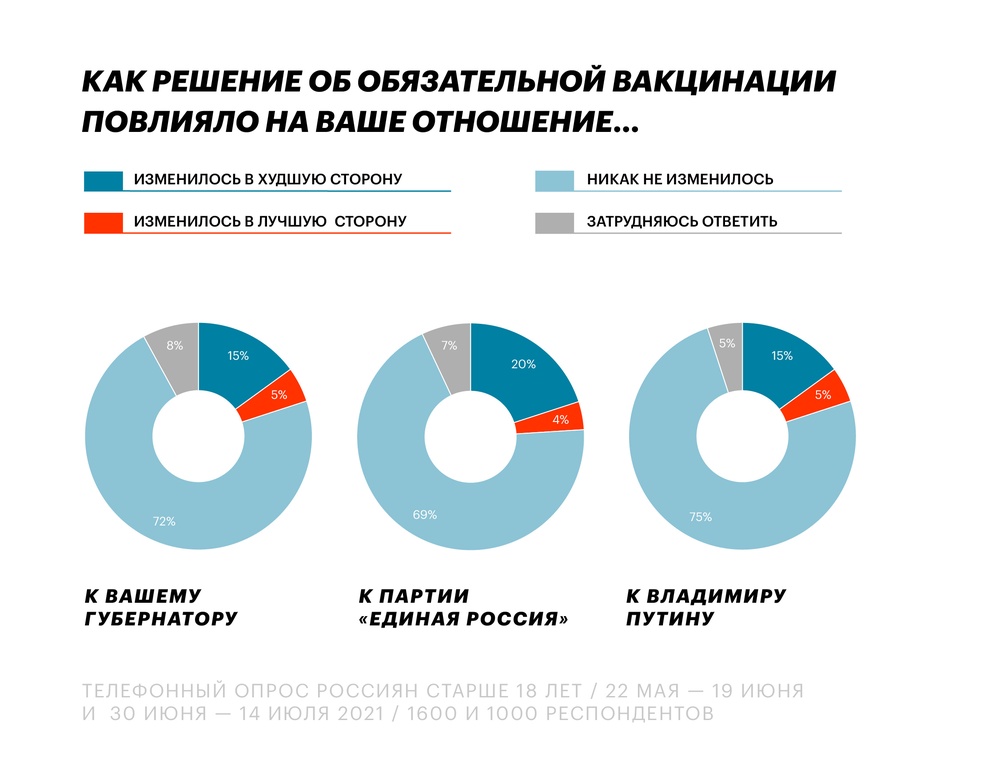
This graph, in fact, explains all their throwing, and why they only hastened to curtail the announced compulsory vaccination, and as loudly as possible – with the help of Putin’s speech on the “straight line”. And yet, it turned out so-so. The drop in ratings could not be avoided. After all, the July poll was made after Putin tried to shift all responsibility to the governors. Russian voters are not fools, and they understand well who is responsible for everything that happens in the country and whose will the governors obediently execute.
Another interesting thing is this. Before the September elections, in order to somehow pull United Russia out of the swamp, Putin began publicly supporting his party. In the Kremlin terminology – “share the rating.” He had never done this before: United Russia is a very shameful brand, and Putin personally tried not to mess with it. In the same year, the situation is so bad that it obliges, and now we see how the president loudly declares his support for the ruling party. But in order to “share the rating,” you have to have something to share, right? And we see that Putin, with his 41% of support, is, of course, still ahead of United Russia with its 29%, but this gap is not nearly as great as before. And, most interestingly, Putin is now far from the most popular politician in the country:
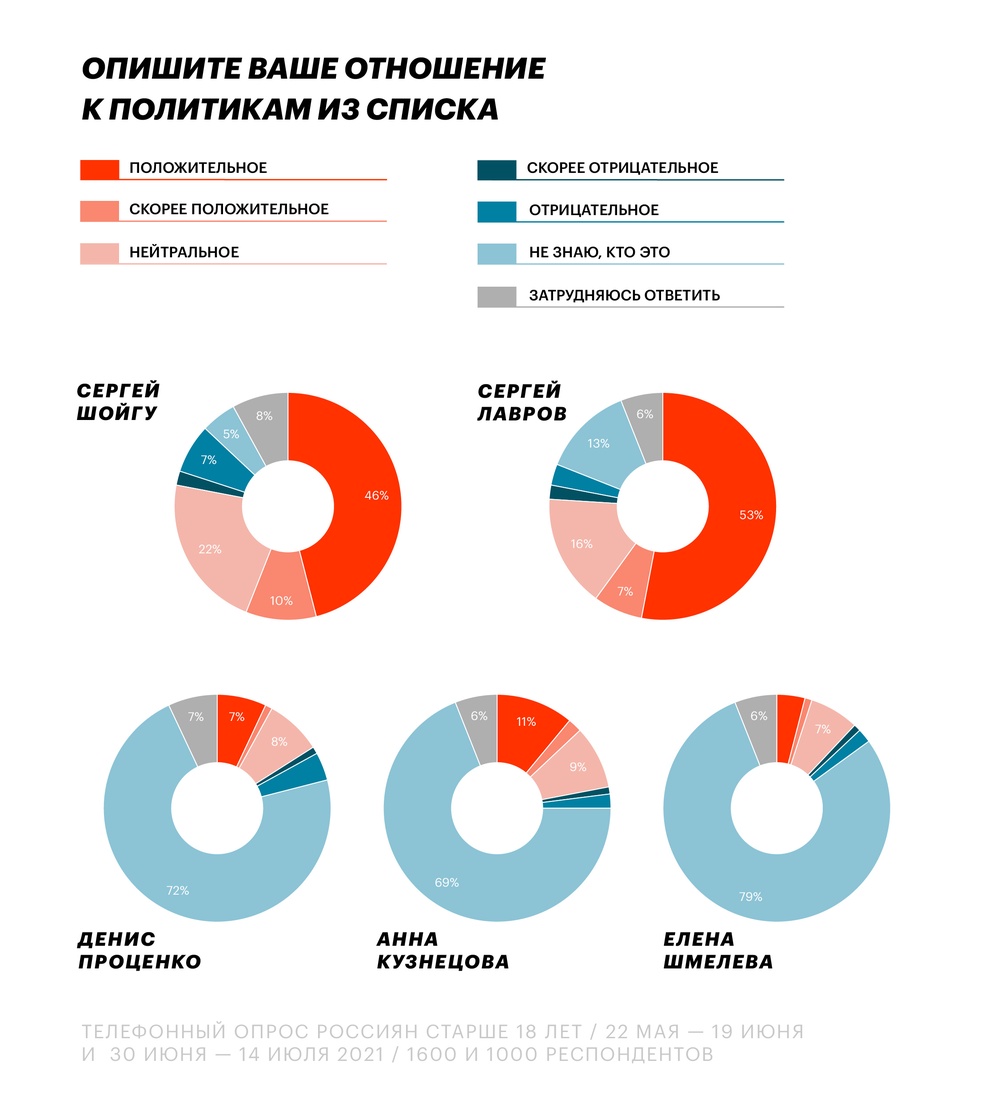
Here is another important finding of our research: Shoigu and Lavrov turned out to be significantly more popular than Putin. How so? After all, they are his loyal soldiers, the conductors of Putin’s policy in the Russian and world arena. How can a puppet be more popular than its owner? (And are Shoigu and Lavrov comfortable in this role? Do they sleep peacefully at night, are they not afraid that Putin will not like this gap in the rating?). In our opinion, this is an indicator of important changes in Russian society: although propaganda continues to desperately describe the greatness and wisdom of a national leader, voters are no longer ready, as before, to forgive him everything. The falling standard of living, the failed reaction to the pandemic, the unpopular pension reform and other problems can no longer be blamed on “negligent officials.” The paradigm “the king is good, the boyars are bad” ceases to work.
But technologically, it turns out, United Russia did everything right: Shoigu and Lavrov are really well suited for the role of locomotives on the list. With their high ratings, United Russia hopes to deceive some voters. The choice of the other three “leaders” of the list looks more strange: Protsenko, Kuznetsov and Shmelev, just no one knows. But there is no anti-rating either, it can be promoted: apparently, this is what the political strategists from the presidential administration thought.
But will the Kremlin’s political strategists be able to deceive everyone again? Is not a fact. Take a look:
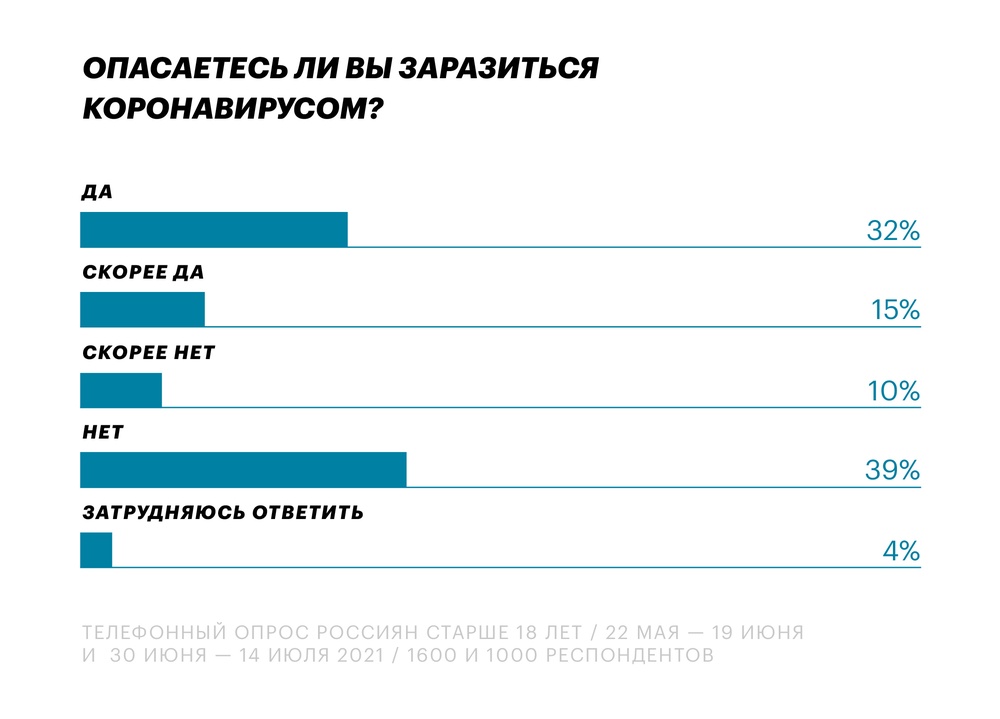
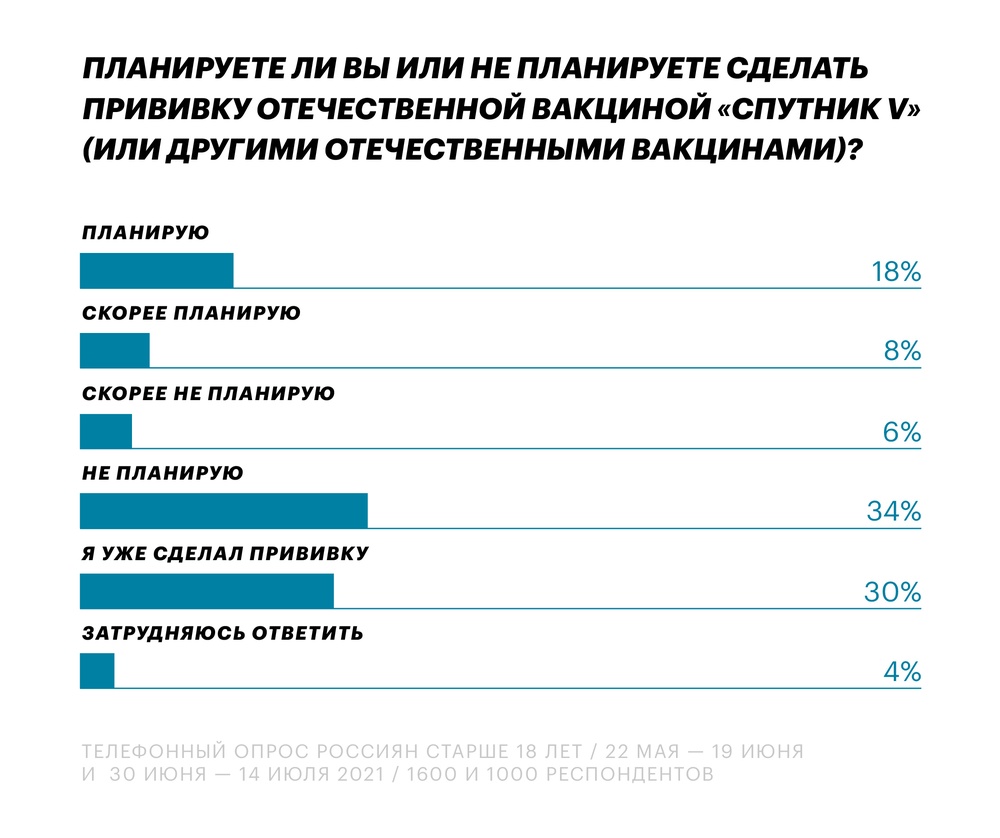
Almost 40% of the respondents say that they are “not afraid of contracting the coronavirus,” the same number “do not plan” or “rather do not plan” to be vaccinated. With such an attitude towards the pandemic, nothing good can be expected in terms of the prospects for achieving herd immunity in Russia. (I note in parentheses that the answer to the last question contains indirect confirmation of the high quality of the work of sociologists – on the days when it was carried out, according to official statistics, in Russia they exceeded 33 million vaccinated with the first dose of vaccine, which corresponds to 30% of the adult population of the country, and namely 30% of those surveyed told us that they were vaccinated). So the Russian government will continue to face a very unpleasant and painful choice. Either they do nothing about the pandemic (and people continue to die), or they increase the pressure (but citizens react negatively to this, and the ratings of Putin and United Russia are falling from this):
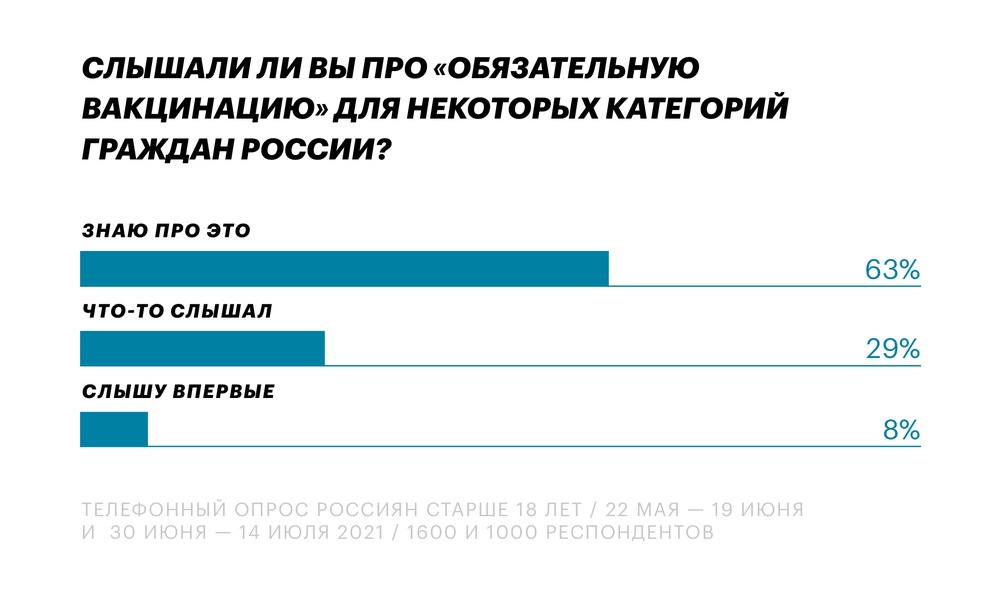
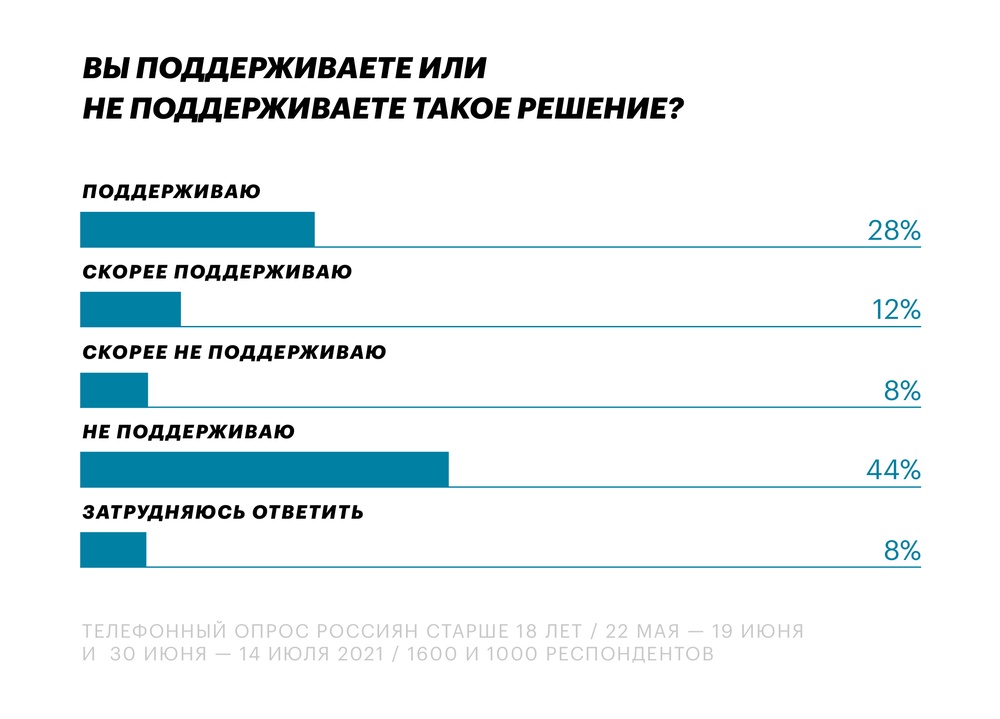
We see that only 40% of voters are inclined to support compulsory vaccination, while 52% do not support it or rather do not support it. A significant part do not support so strongly that they will try with all their might to avoid vaccination:
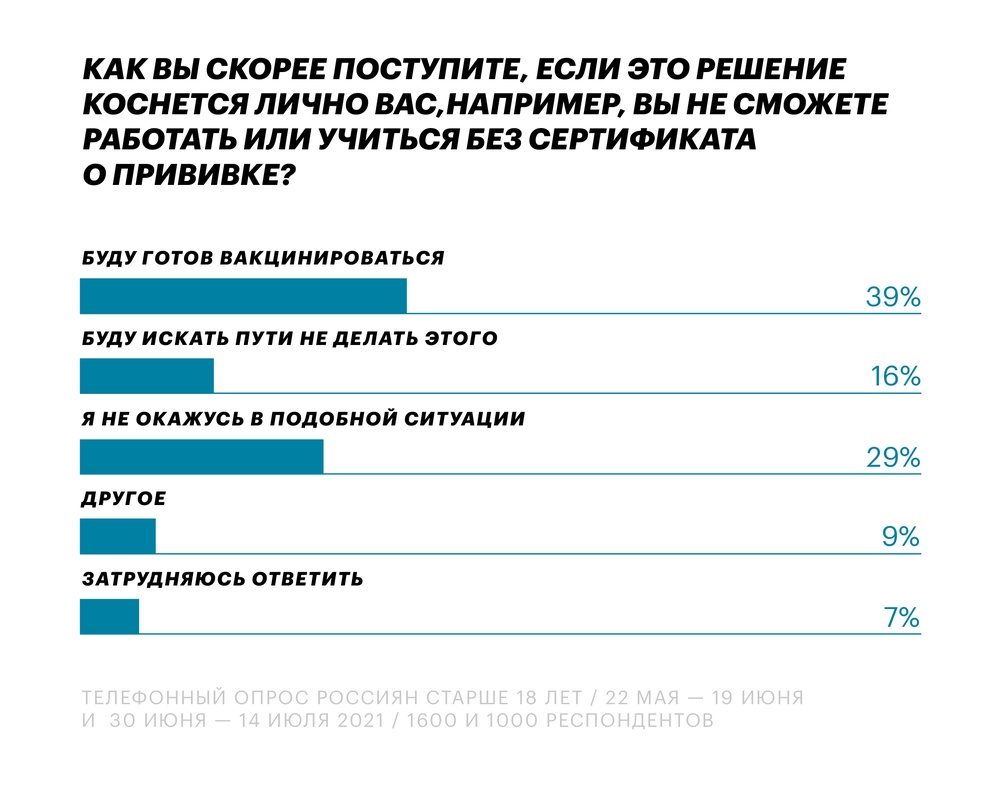
This means that the topic of vaccination will remain the most important topic of the political campaign.
Conclusions.
1. Power ratings have dropped significantly, which increases efficiency and prospects Smart voting…
2. The Kremlin is very closely monitoring the mood of citizens, which is why Putin changed his shoes in the air regarding vaccinations.
3. Political forces (both at the federal level and in the regions), which will really try to pinch off the votes of United Russia, will take the topic of vaccination into service.
…
[ad_2]
Source link




these details